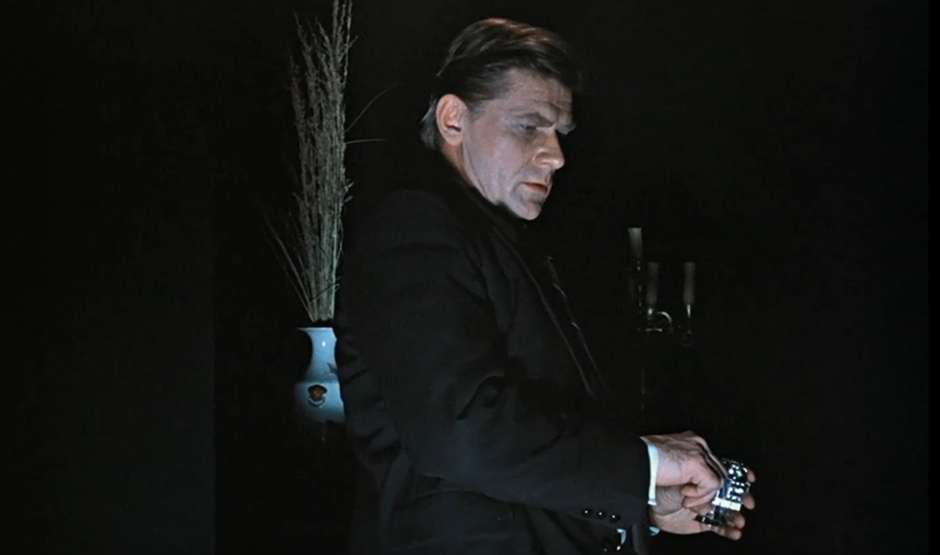Monte Walsh (1970) Review
- Benjamin May
- Sep 17, 2024
- 4 min read
Updated: Oct 11, 2024
The death of the Wild West has been a recurring theme in many films. From Sam Peckinpah’s ‘The Ballad of Cable Hogue’ to Don Siegel’s ‘The Shootist,’ numerous movies have depicted the arrival of modernity and the end of days for cowboys and gunslingers. This transition period, often marked by the emergence of railroads, motorcars and industrialization, symbolizes a profound shift in American identity and values.
These films not only chronicle the physical changes in the landscape but also delve into the emotional and psychological impacts on those who lived through this era. The rugged individualism and frontier spirit that defined the cowboy way of life are juxtaposed against the inevitability of progress and the loss of a simpler, albeit harsher, way of life.
William A. Fraker’s directorial debut, ‘Monte Walsh’ is a moving, powerful exploration of these themes. Set against the backdrop of a vanishing frontier, the film follows the titular character as he grapples with the inexorable march of progress. Monte, along with his friend Chet Rollins, embodies the frontier spirit that is slowly being rendered obsolete. The film poignantly captures their struggle to find purpose and identity in a world that no longer values their skills, not only telling the story of one man’s journey but also serving as a broader commentary on the end of an era.
Furthermore, Monte’s relationship with Martine Bernard, a prostitute, adds a deeply personal dimension to the narrative. She is more than just a love interest; she represents the human cost of the changing times. Their relationship is tender and genuine, marked by mutual respect and affection. Despite the societal stigma attached to her profession, Martine is depicted with dignity and depth.
Monte’s interactions with Martine highlight his vulnerability and longing for stability in a world that is slipping away. Their moments together are the film’s most poignant, and would move even the coldest of people. Their relationship serves as a microcosm of the broader changes happening in the West, illustrating how personal lives are intertwined within the larger historical shifts.
Fraker’s direction brings a sense of authenticity to the film, with sweeping shots of the Western landscape emphasising the vastness and isolation of the frontier. Lukas Heller and David Zelag Goodman’s screenplay brims with nuance and dramatic depth, though is also very funny in places, with sharp dialogue. In addition, David M. Walsh’s cinematography contrasts the open, untamed land with the encroaching signs of civilization, complementing the narrative and enriching its themes.
The film is not just a story about the end of the cowboy era; it’s a meditation on change, loss and the search for meaning in a world that is moving on. It’s poignant exploration of these themes makes it a standout in the Western genre, offering a reflective, emotionally resonant experience. Moreover, John Barry’s elegiac score adds a hauntingly beautiful layer, enhancing its depth. The music underscores the melancholy and nostalgia permeating the story, heightening the film’s impact considerably.
Further, the film stands out not only for its thematic richness but also for its ability to evoke a deep sense of time and place. The minute attention to detail- from Albert Brenner’s authentic production and costume design, to Phil Abramson’s set decoration- immerses one fully in the waning days of the Wild West. It is also well-edited, with a good pace from start to finish- a testament to Fraker and the four credited editors’ skills in the cutting room.
Lee Marvin stars as the titular character, delivering a nuanced, subtle performance that ranks alongside his very best. Marvin underplays the part of Monte beautifully, capturing the quiet dignity and inner turmoil of a man facing the end of his way of life. His performance is marked by a restrained intensity, allowing the character’s emotions to simmer just beneath the surface. This approach not only makes Monte a deeply sympathetic figure but also adds a layer of realism to the film.
Often remembered as a heavy or a tough guy, Marvin here proves once again what a talented, intelligent actor he was; as Monte, he is unforgettable. Opposite him, Jack Palance delivers an equally compelling performance as Chet, bringing an affecting warmth and humanity to the role. He and Marvin- with whom he appeared on screen numerous times- work wonderfully together.
Additionally, Jeanne Moreau makes Martine dignified and tender, providing a strong emotional anchor for Monte. Moreau shares a believable chemistry with Marvin, her performance highlighting the personal sacrifices and emotional toll of the changing times. Mitchell Ryan also does strong work as Shorty Austin, one of Monte’s fellow cowpokes, while the likes of Jim Davis, Matt Clark and G.D. Spradlin are equally commendable.
In conclusion, ‘Monte Walsh’ is a poignant film capturing the essence of a dying era. Through its rich characters and emotional depth, it offers a heartfelt farewell to the Wild West and the rugged individualism it represented. Quiet and compassionate, it’s evocative visuals and score heightens the depth of its engaging narrative, while all in the cast perform masterfully- especially star Lee Marvin. A must-watch for Western fans, or fans of cinema in general, ‘Monte Walsh’ rides high in the saddle into the sunset, lingering in the mind long after the credits have rolled.










